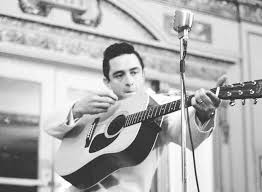“What the writer needs is an empty day ahead.” CATHERINE DRINKER BOWEN
I saw this quote in my Twitter feed recently and thought, “No, No! No!”
A couple weeks ago, I was in Vermont with a handful of other authors, speaking about our books and writing. During the question-and-answer session, an audience member asked about when we write. Specifically, do we write on a regular schedule, or do we write in bursts of creativity? It’s a question commonly asked by readers, but it was the first time I had the opportunity to listen to other writers answer it. In our group of five, at least three of the authors work on their craft fulltime, describing long mornings in which their writing takes place, followed by leisurely lunches and afternoons of writing and revision. They travel to writer’s retreats for weeks at a time, work in offices away from the hustle and bustle of home and are otherwise unencumbered by the demands of other employers.
As I listened to them describe the lives as fulltime writers, I suddenly felt the need to leap from my wobbly chair and silence them. Though I was indescribably envious of their ability to spend their days writing, this envy had nothing to do with my desire to stop them from speaking. Instead, this desire was born from a need to protect the audience from the most common misconception of writing.
It’s been my experience that the most widespread reason for people not writing is a lack of time. Prospective-authors envision writing as requiring three hour blocks of uninterrupted silence in the middle of the day. With a family and a fulltime job, most people cannot find a way to carve out this kind of time from their already busy schedules.
I understand this dilemma well. As a teacher, I work fulltime, leaving the house around 7:00 every morning and arriving home after work and a stop at the gym around 5:00 every afternoon. I also own a mobile DJ company and entertain at about thirty weddings a year. Each of these weddings require me to meet with clients at least once before the actual wedding, taking more time away from writing. As a secular minister, I even marry people at some of these weddings, necessitating even more meetings. And I have a couple other irons in the fire as well in terms of business. In short, I’m a busy guy.
I also have a one-year-old daughter who keeps me quite busy, and I still make time to play golf, poker and basketball with friends quite regularly. I’m a member of a book club and read a lot, and I own a dog who I walk twice a day.
As I said, I’m a busy guy.
Finding a three-hour, uninterrupted block of time for writing is rarely possible in my life. Hell, even an hour is sometimes impossible to find. Yet I’ve written two novels and am about to finish my third, all in the span on about four years.
How have I accomplished this?
By writing whenever and wherever I can. Oftentimes this means writing for incredibly short periods of time: ten to twenty minutes in many cases. But I never allow the length of time available to me to be an excuse not to write.
I write in the morning, between walking the dog and leaving for work (as I’m doing right now). I write during my lunch break. I write for ten minutes while my wife is finishing dinner. I write for the forty-five minutes that my daughter is still napping. I write for fifteen minutes while waiting for a meeting to begin. I write for twenty minutes while waiting for a wedding to begin. I write in waiting rooms, train stations, hotel lobbies, McDonald’s restaurants and highway rest areas.
Wherever I can, and whenever I can, I cobble the time together to write my stories.
Would I like to write fulltime? Of course. In addition to my fiction, I have a cartload of other projects that I’d love to be working on. But for now, I stick to fiction because that is what pays the bills and allows my wife to stay home with our daughter. Perhaps someday in the future, I will have the same opportunities as my fellow Vermont writers, but until I do, ten minutes here, an hour there, and the occasional lunch break will have to do, as it should for you.
If you have ever dreamed of writing and cannot find the time, make the time. Cobble together little bits of your day, writing a paragraph or even a sentence at a time if necessary.
No excuses.
Long days, spacious offices and lovely, seaside views are wonderful, but Stephen King began his career beside a washing machine and John Grisham wrote his first novel on a legal pad while eating. I wrote mine on a laptop that I drag with me wherever I go. SOMETHING MISSING was written at the kitchen table, in the teacher’s lunch room, and on planes and trains. I wrote while waiting to be married, while on my honeymoon and every day in before and after.
I was working on my second book, UNEXPECTEDLY, MILO, between my wife’s contractions during the birth of our daughter.
So please don’t start believing that the scene must be perfectly set before you begin scribbling with your pencil or pounding at the keys. Let the world be your office, and make the time that you have count.
Write for ten minutes if that’s all that you have. Write one sentence a day if necessary. But please don’t wait for the ideal writing situation. Most ideal situations are the product of years of less-than-ideal situations.








